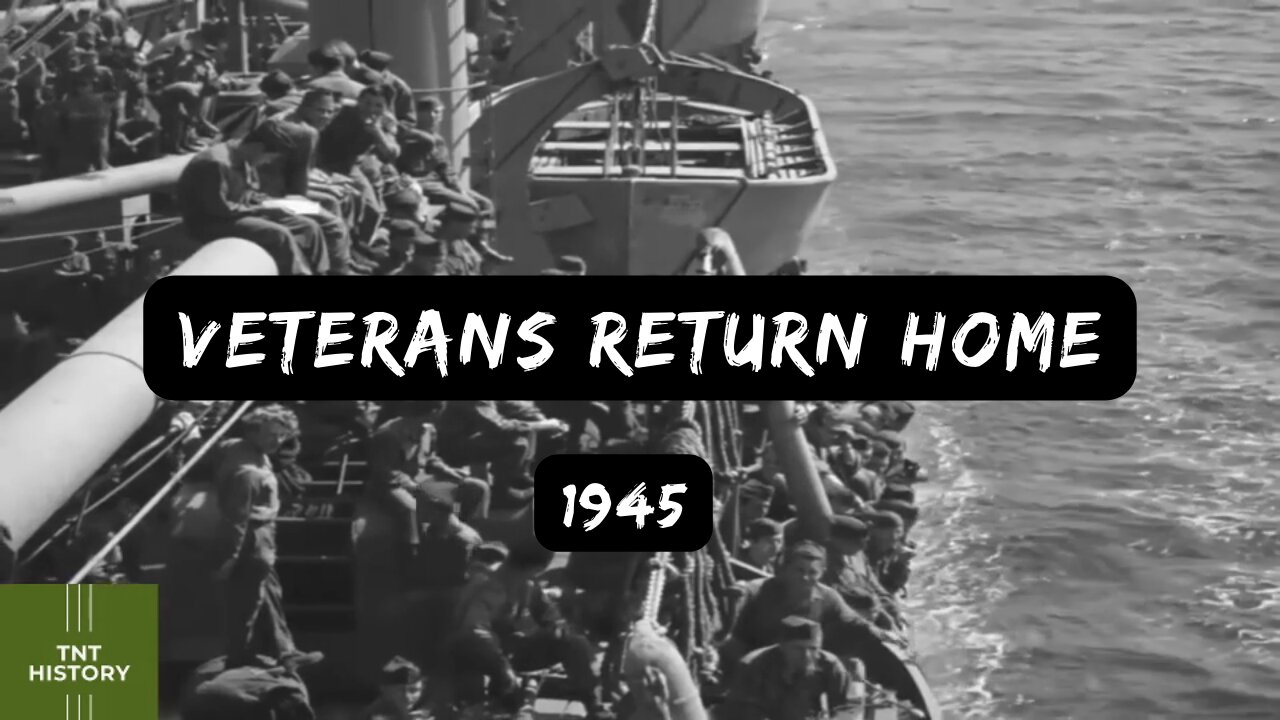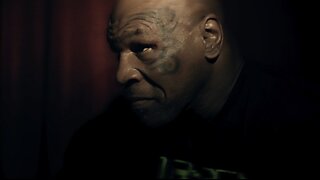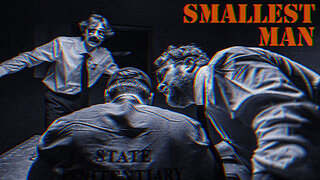Premium Only Content

WW2 Film: Welcome Home - A Glimpse into Veterans' Return
ORIGIN OF THE FILM
Dating back to 1945, this short film, initially titled 'Welcome Home,' was created by the U.S. War Department. It offers a glimpse into the experiences of World War 2 veterans as they return to civilian life. The documentary sheds light on the attitudes and behaviors exhibited by servicemen during this transition, underscoring the humanity, adaptability, social awareness, and resilience of U.S. veterans.
HISTORICAL CONTEXT
The demobilization of the United States' armed forces following the conclusion of World War II commenced with Germany's defeat in May 1945 and extended throughout 1946. At the war's end, the United States had over 12 million men and women in its armed forces, with 7.6 million stationed overseas. By June 30, 1947, the number of active-duty soldiers, sailors, Marines, and airmen had dwindled to 1,566,000.
Veterans' accounts of their wartime experiences often paint a grim picture of a nightmarish existence where basic decency and humanity seemed to vanish. For those who had endured such conditions, returning home marked a challenging transition. Most importantly, these individuals yearned for a return to "normalcy," the life they had been promised once the war was won. However, this transition proved far more difficult than anticipated, with challenges ranging from employment opportunities in the civilian workforce to the complexities of child-rearing and post-traumatic stress.
One of the prominent issues returning veterans encountered in the United States was the availability of jobs. During the war, the U.S. government actively encouraged women and minorities to join the industrial workforce due to labor shortages and the heightened demand for war-related goods. By 1944, a staggering 1,360,000 women with husbands in the military had entered the workforce. Simultaneously, the migration of African-American workers from the southern states met the wartime labor needs. However, this attitude towards women in the workforce underwent a significant shift at war's end. The propaganda that once celebrated "Rosie the Riveter" abruptly changed focus, promoting the role of women as homemakers and mothers. Despite these efforts and the passage of G.I. bills to support veterans after the war, returning soldiers encountered considerable challenges when seeking employment in post-war America. The wartime empowerment of women and its subsequent reversal with the return of men left a lasting impact on gender relations in American society and sowed the seeds of the women's rights movements in the decades that followed.
✅ Express your opinions and be heard by signing up on YouGov.com.
YouGov: https://bit.ly/Signup-on-YouGov
🐦 Follow TNT History on Twitter: https://twitter.com/history_tnt
✅ Hostinger.com Everything You Need to Create a Website - Up to 75% off Hosting
https://bit.ly/Hostinger-75-Percent
Visit Jadesales.shop for Reliable and Affortable Products - Free Shipping on Orders over $45
Electronics: https://bit.ly/Electronic-Collection
Health Products: https://bit.ly/Health-Items
School Supplies: https://bit.ly/Jade-Sales-School-Supplies
-
 30:25
30:25
Glenn Greenwald
9 hours agoGlenn Takes Your Questions Post-Election On The Trump Admin & More
158K63 -
 1:26:23
1:26:23
vivafrei
12 hours agoChinese and Indian INFILTRATION in Canadian Government? Live with David Krayden! Viva Frei Live
169K92 -
 52:17
52:17
Candace Show Podcast
12 hours agoFight Night! Me VS Marc Lamont Hill On Transgenderism | Candace Ep 104
174K341 -
 1:12
1:12
Mike Tyson
12 hours ago $28.24 earnedIt's a war.
133K40 -
 1:04:11
1:04:11
In The Litter Box w/ Jewels & Catturd
1 day agoProsecute/Fauci | In the Litter Box w/ Jewels & Catturd – Ep. 692 – 11/15/2024
149K63 -
 5:17
5:17
BFFs: Dave Portnoy, Josh Richards & Bri Chickenfry
10 days agoSmallest Man
284K24 -
 1:45:03
1:45:03
The Quartering
14 hours agoRFK Big Pharma Meltdown, Alex Jones WIN & Shadow Government To Oppose Trump!
164K48 -
 1:53:23
1:53:23
Tucker Carlson
14 hours agoFasting, Prayer, Meditation, & the Global Persecution of Christians (With Hallow CEO Alex Jones)
216K98 -
 53:03
53:03
Ben Shapiro
14 hours agoEp. 2086 - It’s MAHA TIME: Trump Picks RFK Jr.
162K90 -
 57:03
57:03
Russell Brand
17 hours ago“I Can PROVE Biden Took CORRUPT Money From Ukraine” – Rudy Giuliani on The Biden Crime Family –SF494
233K354